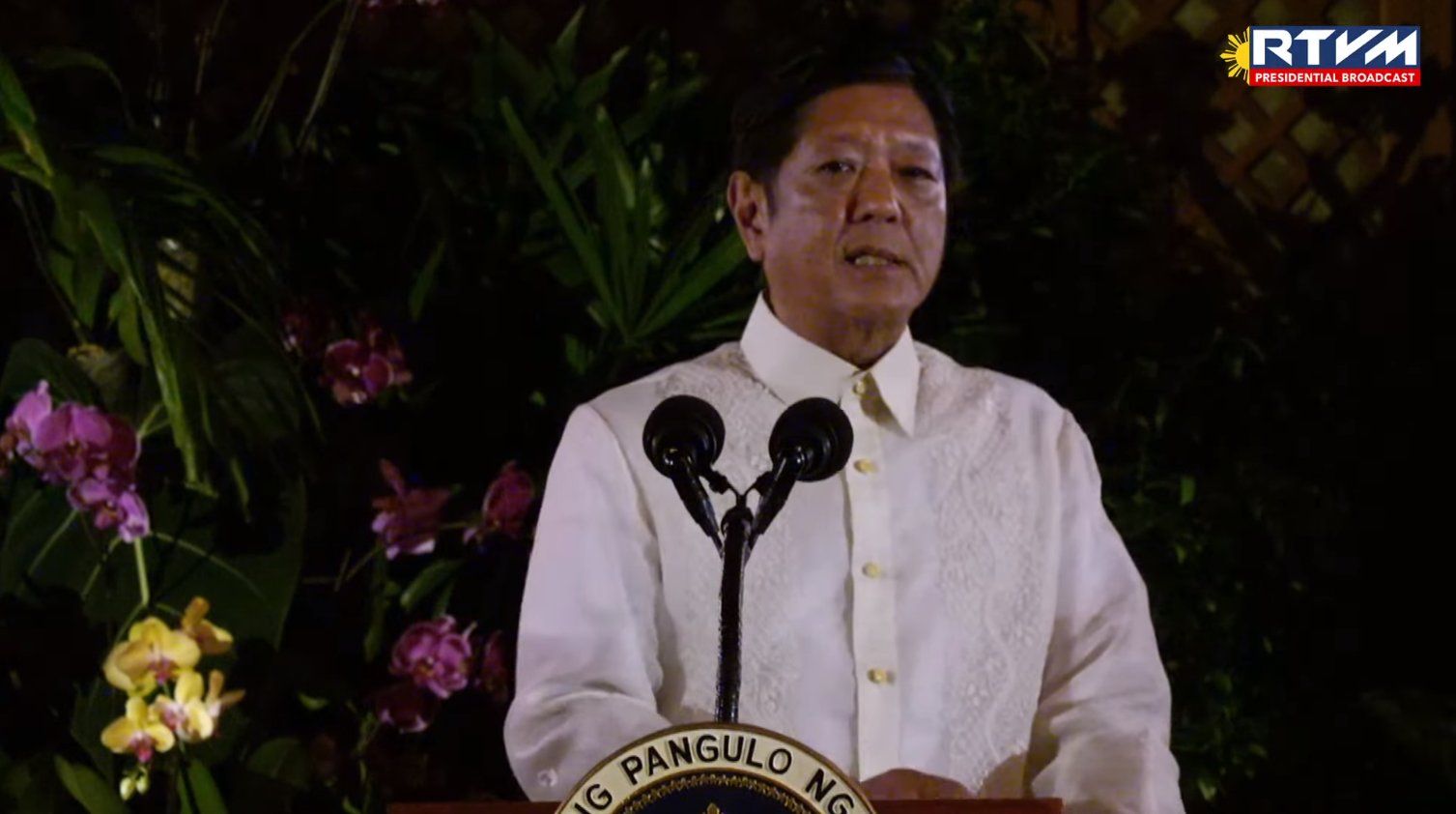Marcos eyes more resilient Asia-Pacific Region with disaster risk reduction conference
At A Glance
- The APMCDRR brings together governments; intergovernmental, international, national, and civil society organizations; the private sector; science; academia; and stakeholder groups to accelerate progress in reducing disaster risk.
"Our vision is clear: to reduce disaster risks and losses, and in doing so, protect lives, livelihoods, and the social and economic assets that underpin our societies."
This was President Marcos' clear objective as he expressed his desire for a more resilient Asia-Pacific Region that he believes could be achieved with the ideas exchanged during the 2024 Asia-Pacific Ministerial Conference on Disaster Risk Reduction (APMCDRR) in Manila this week.

Marcos said this as he hosted the ministerial dinner for the APMCDRR delegates in Malacañan on Monday evening, Oct.14, a day before the conference opens on Tuesday, Oct. 15.
In his speech, the President stressed that climate change, particularly minimizing the effects of disasters, has become central to how governments shape their people's future.
"At the heart of our efforts – all our efforts is climate change—an issue that we have integrated into our national and regional policies, from investment strategies to policy implementation," he said.
"There is no longer even a single conversation that we have that does not include an aspect of adaptation, mitigation to climate change. That is how primordial it has become in our everyday lives," he added.
However, Marcos said the increasing frequency and severity of natural hazards call for deeper innovation, closer cooperation, and sustained commitment from everyone. He cited as an example the Philippines being at the frontline of climate crises.
"Our geographical location exposes us to hazards such as typhoons, earthquakes, tsunamis, and volcanic eruptions," he said.
"Each of these challenges has tested the resilience of every Filipino and the strength of our spirit as a nation as, of course, it has done to your countries as well," he added.
With this, he hoped the conference, which he described as "urgent," would present opportunities to leverage science and technology to alleviate the impact of climate change and ensure that financing is accessible to all.
"Here, we can learn from each other, strengthen partnerships, identify innovative ideas, and adopt best practices," he said.
"By harmonizing all of our efforts, I trust we can build an Asia Pacific region that is truly adaptive, inclusive, resilient, and sustainable," he added.
The APMCDRR brings together governments; intergovernmental, international, national, and civil society organizations; the private sector; science; academia; and stakeholder groups to accelerate progress in reducing disaster risk.
The conference is the main platform in Asia and the Pacific to monitor, review, and enhance cooperation for the implementation of the Sendai Framework for Disaster Risk Reduction 2015-2030 at the regional level.
The Sendai Framework for Disaster Risk Reduction 2015-2030 aims to achieve "the substantial reduction" of disaster risk and losses in lives, livelihoods, and health and the economic, physical, social, cultural, and environmental assets of persons, businesses, communities and countries over the next 15 years.